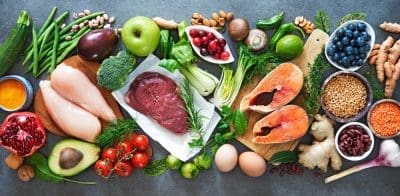A new study has sought to quantify the difference in cost between nutritionally-equivalent diets containing exclusively plants and diets containing a mix of plant and animal-sourced foods.
 The research from the Riddet Institute at Massey University in New Zealand was recently published in the Frontiers in Nutrition journal.
The research from the Riddet Institute at Massey University in New Zealand was recently published in the Frontiers in Nutrition journal.
It showed that a plant-based diet that is nutritionally equivalent to one comprising both plants and animal proteins is “considerably more costly”, to the tune of 34 to 35 percent higher.
The paper reviewed recent modeling studies using Linear Programming to determine the respective roles of animal- and plant-sourced foods in developing a least-cost diet in the United States and New Zealand.
In both economies, least-cost diets were found to include animal-based foods, such as milk, eggs, fish, and seafood, to meet the energy and nutrient requirements of healthy adults at the lowest retail cost.
To model a solely plant-based least-cost diet, the prevailing costs of all animal-sourced foods had to be increased by 1.1 to 11.5 times their original retail prices.
This led to the inclusion of fortified plant-based foods, such as fortified soymilk, and a plant-based diet that was “considerably (34–45%) more costly”.
The authors noted that the promotion of plant-based diets around the world is largely in response to a perceived negative environmental impact of animal food production.
For example, the move towards a ‘planetary sustainable diet that’ is mostly plant-based is based on the high-level comparison that animal-sourced foods give rise to more greenhouse gas emissions per kg of food than plant-sourced foods.
However, nutritional adequacy and economic implications of plant-sourced sustainable healthy dietary patterns need to be taken into account when considering globally sustainable dietary patterns, the authors state.
The “sustainable plant-forward” EAT-Lancet diet has been found to be nutritionally inadequate for calcium, iron, zinc, and vitamin B-12, the authors note, and unaffordable at a median global cost of US$2.84 per person per day (2011 prices) for 24 percent of the world’s population.
“The monetary cost of foods is a crucial determinant of food choice, diet quality and food an nutrient security,” the authors state.
“Diet cost is an important focal point of attention when transitioning from a diet that contains animal- and plant-sourced foods to a plant-only based vegan diet.”
Using the Linear Programming (LP) approach to identify foods that meet the nutrient requirements of a healthy average adult, foods originating from animals, such as dairy milk, eggs, fish, and seafood, were often key components of the least-cost diets.
Legumes, milk, potatoes, and seeds were the greatest contributors to diet cost, whereas fats, oils, sugars, and starchy staples were low-cost rich sources of energy.
Nutritional adequacy depends on the dietary supply of nutrients and bioavailability, that can be described as the proportion of an ingested nutrient that is available for utilisation in metabolic functions.
Natural food products originating from animals often contain protein and key vitamins and minerals, in higher amounts and greater bioavailability, than those of plant origin, the study noted.
“Our results show that animal-derived foods are economically valuable sources of first-limiting essential key vitamins and minerals, and there is a considerable margin whereby the prevailing prices of animal-sourced foods need to increase to ensure their exclusion.
“Furthermore, when all animal-based foods were substituted with plant-based foods, the modeling of exclusively plant-sourced nutrient adequate least-cost dietary patterns was dependent on nutrient fortification and was relatively expensive.
“The respective roles of animal and plant food sources for the affordable and adequate provision of essential nutrients, and the often-missing economic dimension in the context of sustainable nutrition security, has been addressed.”
